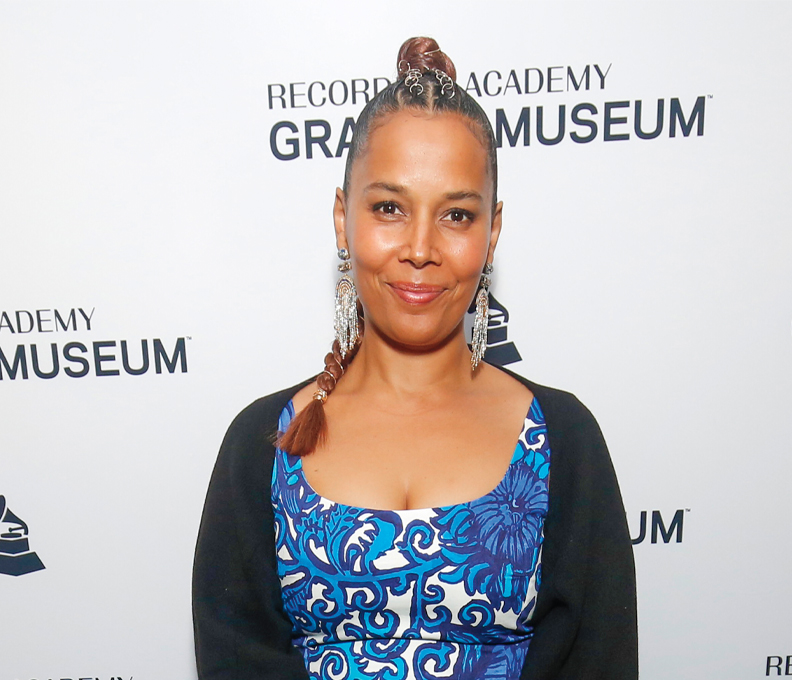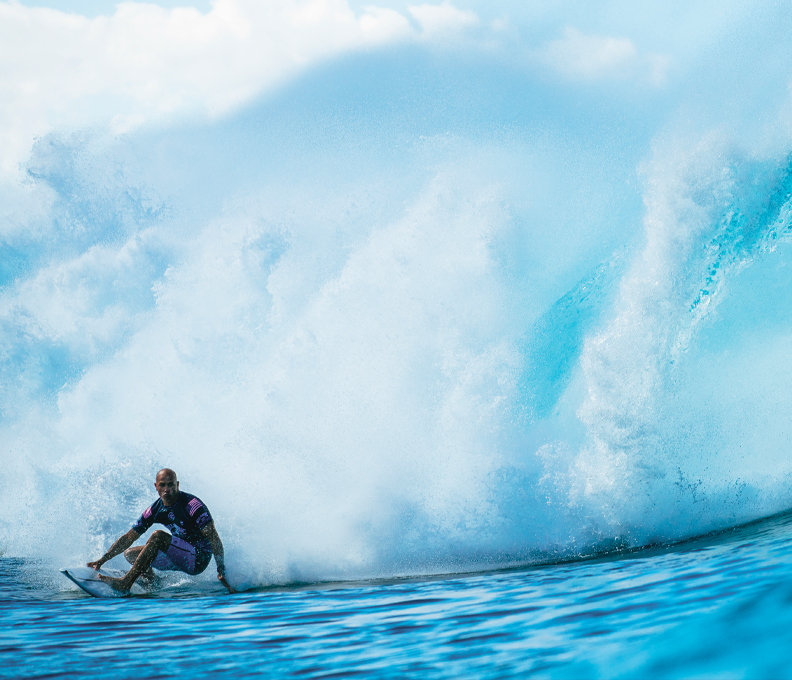The Secrets of Rachel Zoe’s Success
The fashion entrepreneur, author and philanthropist built a powerful brand through hard work, authenticity and kindness
March 1, 2024
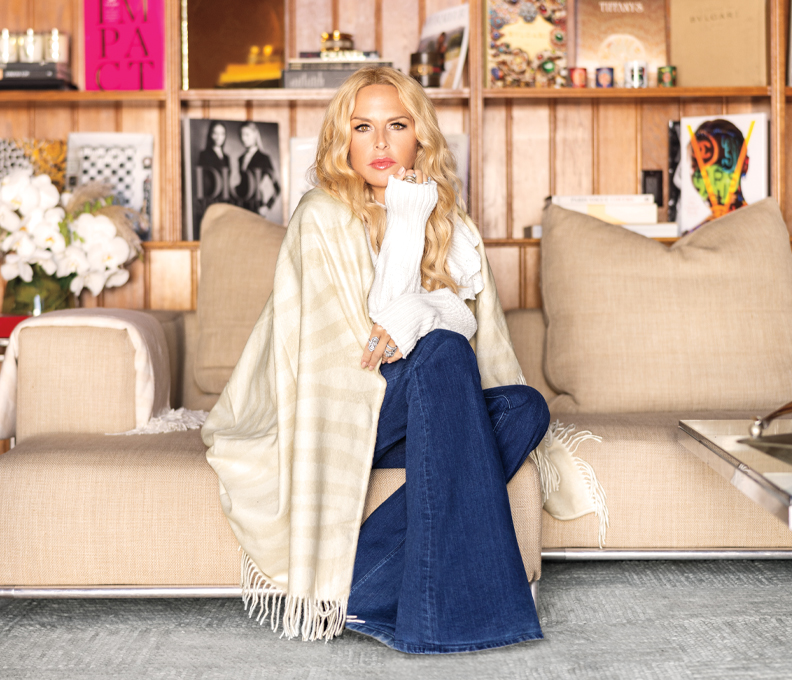
Rachel Zoe / Photo: Courtesy of Mark Hanson
Is there anyone Rachel Zoe hasn’t met? Sitting in her office in her Los Angeles home, the OG celebrity stylist, bestselling author and longtime entrepreneur laughs. “I know a lot of people—and I’m happy to say, most of them are incredible, accomplished women,” she says.
Indeed, a conversation with Zoe will include mentions of a seemingly endless list of women both famous and behind the scenes, from Iman and Brooke Shields to Candace Nelson, cofounder of Sprinkles Cupcakes and pizza chain Pizzana, or Melissa Wood-Tepperberg, a fitness and wellness expert who’s better known to her legions of fans as Melissa Wood Health. Each has been a guest on Zoe’s podcast, Climbing in Heels, which is dedicated to showcasing the backstories of powerful women across a wide spectrum of industries.
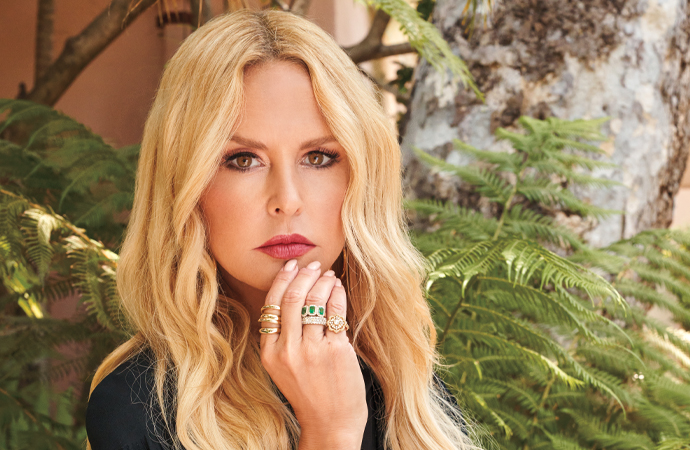
Rachel Zoe / Photo: Courtesy of Mark Hanson
Before digging into the details of the series, Zoe wants to address its title. “People hear ‘climbing’ and immediately think, Oh, she’s such a climber, and it’s not that at all,” she explains. “It’s about the brutal climb, the climb to the top of Mount Everest in your field. Every woman I’ve had on the pod has been through that struggle. So it’s about extraordinary journeys, from women who’ve grown up with a single mom or barely graduated from high school to women who came from very privileged or famous families but still experienced challenges.”
Zoe’s intention is to dive into those experiences and early struggles, because her goal is to obliterate a variety of myths about successful women. “We’ve heard them all,” she says. “‘She knows so-and-so, that’s how she got that job,’ or, ‘She went to this school, so of course that’s how she ended up there.’ There’s always an excuse, right? But the reality is, the common thread of these successful women is that they got where they are because they’ve outworked everyone else.”
That’s undeniably true of the women who have already appeared on Zoe’s podcast. The Climbing in Heels episode featuring Wood-Tepperberg discusses her childhood as one of six siblings of a single mother in Syracuse, New York, and how this early experience informed her work ethic. In another episode, Iman recalls the details of her family fleeing Somalia following a military coup in 1972 and crossing over into Kenya on foot, with the future supermodel and her family owning nothing but the clothes on their backs. “These are both incredible, extraordinary women,” Zoe says. “I’ve also known Iman for a long time. She’s someone whose world I came up in at a time when most women weren’t rooting for me, and she was always rooting for me.”
The latter thought is one that especially resonates for Zoe. “It wasn’t always true that women supported or mentored each other as much as now, but that’s also because we were fighting for the one spot that was allowed for us in the room. That has changed over, say, the last five years. It’s not just that there are more women at the table, but our voices are being sought out more, and our voices can be louder. If you had a loud voice or were too opinionated, then you were difficult. That has changed, and it’s thanks to other women supporting and lifting us all up.”
Recalling her own early years also drives Zoe to pay it forward, she says. “I enjoy singing about the success of other women, because I didn’t have anything like that when I went freelance at the age of 25,” she explains. “But it’s also not just for younger women. It’s about telling women—whether you’re 30, 40, 50 or 55—that it is possible to pivot and do other things. We all should be championed in that.”
Born Rachel Zoe Rosenzweig in New York City (later shortening her name professionally to Rachel Zoe), she was one of two daughters of Leslie and Ron Rosenzweig, whom she credits as a pair of strong people who each influenced her in different ways. “Neither of my parents came from money, but both were very hard workers,” Zoe recalls. “Because both my [maternal] grandparents worked, my mother became a sort of mother to her sister before later going to the University of California, Berkeley, and becoming an activist for both women’s and civil rights. And my father was such a girl dad. He always worked—and at 86 years old, he continues to do so—but he also had time to coach our softball games or take us skiing, while also giving us the sense that we were equal to boys in everything.”
Zoe studied psychology and sociology at George Washington University before moving to New York City to work in fashion. That background is on her mind when she’s mentoring someone and they ask her advice about getting into the fashion industry. “They’ll say, ‘I was going to go to college to study business, but I really want to work in fashion,’ ” Zoe says. “And I’ll stop them and say, ‘Do that—go to business school. Because fashion is a business—it’s a big, tremendous, massive business, and it’s complex, layered, brutal and amazing. It’s all great things, but if you walk into a room knowing the business of fashion, then you’re already winning.’ ”
Her initial dream was to become a child psychologist. But when she struck out on her own at 25 to work as a fashion publicist, her personal style would ultimately spawn a boho-chic craze that swept through Hollywood and beyond, leading to a career as a celebrity stylist, with clients that included everyone from Demi Moore, Liv Tyler and Kate Hudson to Debra Messing, Cameron Diaz and Kate Beckinsale. A stunning one-shoulder gown worn by Jennifer Garner to the 2004 Academy Awards vaulted Zoe into the pantheon of Hollywood’s most influential stylists. (In 2011, The Hollywood Reporter dubbed her “Hollywood’s Most Powerful Fashion Player.”)
“I’m lucky that I never needed much sleep, because when I was styling I could sleep three or four hours a night and then be on set and still be on my game,” she says. “My mind doesn’t rest well. It’s always going, always planning, always thinking.”
Zoe also quickly learned the lesson of working for yourself. “I always tell people there are pros and cons: The pro is, you have no one to answer to, and the con is, you have no one to answer to,” she notes. “You can’t have the flu, you can’t call in sick, but there are positives. In my styling life, I was flying all over the world, traveling to fashion weeks, and as my business grew, I was simultaneously doing my show, writing books, and launching The Zoe Report.”
While in college, Zoe met fellow GW student Rodger Berman; the pair married in 1998. Today Berman is the co-CEO of Rachel Zoe, Inc., managing details behind the scenes while Zoe remains front and center conceptualizing ideas and authoring books that include Living in Style: Inspiration and Advice for Everyday Glamour and Style A to Zoe: The Art of Fashion, Beauty & Everything Glamour. In 2009 Zoe launched The Zoe Report, a free daily newsletter that explores the vast spectrum of style.
“I came up in fashion at a time when there was this attitude that you had to be really cool to work in fashion, and I always thought that was so not cool,” she says. “I always wanted to democratize fashion and beauty—you know, lift the curtain. That’s part of why I started The Zoe Report, so I could say, ‘Look at this fabulous look from Alexander McQueen for $25,000—if you only have $50 to spend, I’m going to show you how to get that look.’ I wanted to show people everywhere how they could take a trend and break it down at home. We did that with red carpet dressing, and we did it with how designers did things in their own studios. I would tell readers, ‘Fashion is a world that might seem a bit scary, but it doesn’t have to be.’ ”
That attitude led to a plethora of offers, from Bravo’s docuseries The Rachel Zoe Project to an eponymous clothing line and product partnerships that today includes women’s fashion, home and design, activewear, baby clothing and more. Many of these can be found at Curateur, a luxury subscription service that is curated by Zoe and delivered four times a year. A fragrance line, meanwhile, is sold at retailers including Macy’s, with Zoe-suitable names such as Fearless and Instinct.
Amid her nonstop schedule, Zoe says she made the conscious decision to forgo celebrity styling, as it required both extensive travel and the largest chunk of her time. “When I had my kids, styling took a back seat,” says Zoe, who is the mom of 12- and 10-year-old sons Skyler and Kaius. “When they were younger, I could bring them to New York with me and stay for three weeks or a month, but once they started school, that had to change. They really are my entire soul and my whole being. So every day of the school year is about being up at 6 a.m. and making sure they’re out the door by 7:30, and at that point I can put my head down and see what the day is going to be about—also, because as any entrepreneur knows, it’s different every single day.”
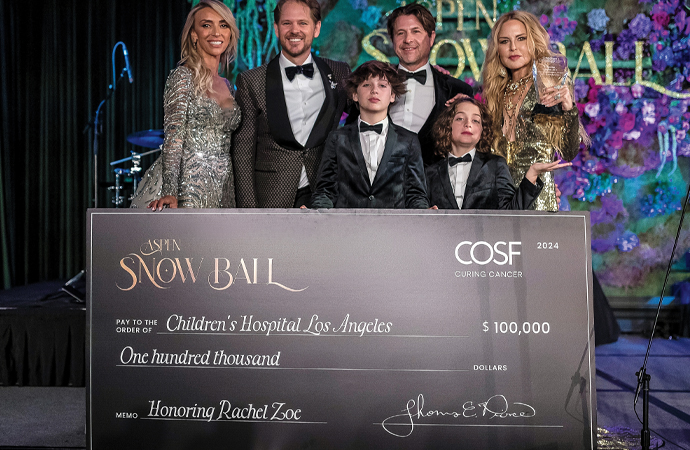
Rachel Zoe accepting the Philanthropic Impact Award at the Aspen Snow Ball in February, with Guiliana Rancic, Thomas Pierce, husband Rodger Berman and sons Skyler and Kaius / Photo: Nick Tininenko/Getty Images for Children’s Oncology Support Fund
It’s important to Zoe to ensure her sons understand not only what might seem like the more glamorous aspect of her career, but also the realities. In February at the Aspen Snow Ball, an event that raises funds for children with cancer and blood disorders both treated and studied at Children’s Hospital Colorado, Zoe—who also works with organizations including Baby2Baby and Children’s Hospital Los Angeles—received the night’s Philanthropic Impact Award. She received her trophy from Berman and their two sons.
When we spoke in late January she was realizing just how special the moment would be. “I’ve always exposed my kids to the realities of life and how fortunate they are just having their health. But also, raising children in L.A., it’s a unique experience, and it’s important to me that they see reality. It’s not just about being loved every day, but also about how lucky they are, because that is not a given.”
Another element Zoe says is essential: “I contradict myself every day. Sometimes I can be wildly insecure and unsure of myself, and yet I also possess this fearlessness to give my opinion, but always in a very kind manner. I think about my dad, who was this badass CEO, but he has never felt like only that guy. He taught me that you can in fact be a leader, but you also can be kind doing it.”
So when Rachel Zoe has been asked over the years, “How did you build your brand?” her secret to success may have struck many by surprise. “I was never intending to build a brand, but I turned around one day after 10 years, and I was a household name,” she says. “So when I’m asked, I tell them I only know it was unintentional—but if you’re kind and truly authentic, then it won’t feel like work.”
Zoe considers for a moment. “Of course, my husband would say I’ve outworked everyone else, and that’s true as well,” she says. “But I’ve never felt like the cool girl in the room. It was more like, Everyone come in, let’s do this and get it done.”

